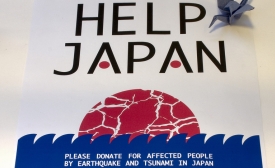public diplomacy

“Hajj: Journey to the Heart of Islam,” the exhibition at the British Museum that has drawn more than 80,000 visitors since it opened in late January is a remarkable achievement.

While Japan struggled to recover from the 3/11 earthquake and tsunami, Japanese PD also struggled to recover from the damage.


There’s a real spectrum of celebrity activity. George Clooney really stands out, along with Angelina Jolie and Bono -- you can disagree with some of the cases that they pick up, but they’re very conscientious, they’re advised well, they’re in it for the longer run.
Social media continues to change the landscape of the way we interact, go about our lives and connect us in ways that we never imagined. One such example is the unprecedented ability for people to unite for the common good, and to promote truth and justice.
Words without Borders tells us that "50 percent of all books in translation now published worldwide are translated from English, but only six percent are translated into English." "The conversation between the reading public in the United States and the rest of the world has become more like a monologue."







